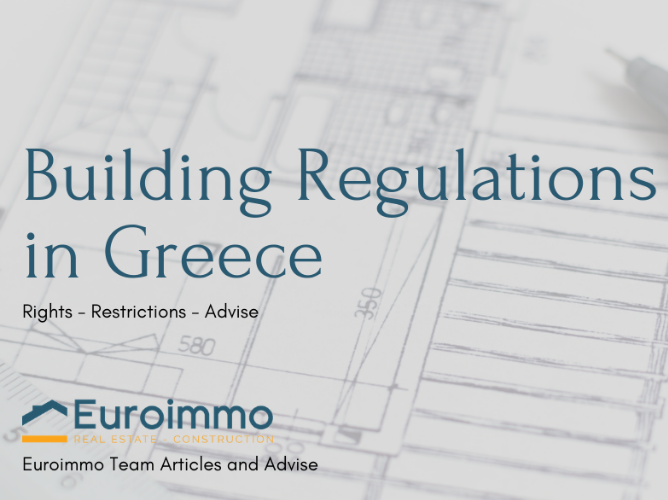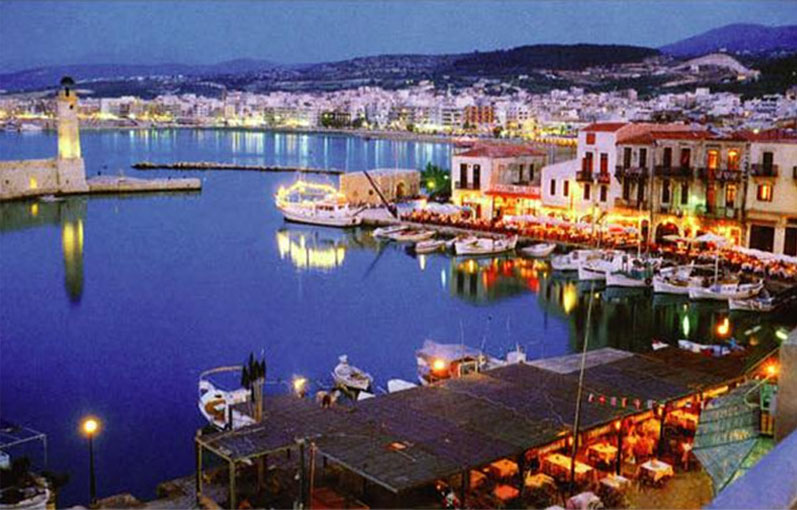Crete is the largest and most populated of the Greek islands, the 88th largest island in the world and the 5th in the Mediterranean Sea.
Crete forms a significant part of the economy and cultural heritage of Greece, while retaining its own local cultural traits (such as its own poetry and music).
The total population of the island is around 650.000. There is no heavy industry on the island and, apart from tourism, locals engage in livestock rearing (predominantly sheep and goats) and produce high quality olive oil from the ubiquitous olives.
At the Travelers’ choice awards by TripAdvisor, Crete took the 5th place, as one of the most popular touristic destinations in the world, after Paris, London and Rome. So, let’s look at some points that make Crete such a popular place for tourists and investors.
History background
Crete is an island with a historic background and civilization which goes 5,000 years back to history, preceding the Minoan civilization which was the first civilization in Europe and the first in Europe where a palace was built (Knossos Palace), using sophisticated architectural techniques, water supply and drainage systems. After the Minoan civilization was devastated by the Thera eruption, Crete developed an Ancient Greece-influenced organization of city states, then successively became part of the Roman Empire, the Byzantine Empire, the Venetian Republic, the Ottoman Empire, autonomous state, and the modern state of Greece.
Climate
The climate of Crete is generally described as mild Mediterranean. At its’ high mountains the climate has continental characteristics. The yearly temperatures fluctuate between 14 and 45 degrees Celsius, the mainland has generally warmer summers and colder winters, while the southern coasts are warmer both in winter and summer in relation to the northern coasts. The sun shines almost around the whole year, with its higher intensity and frequency from April to October.
The hottest months are July and August, but generally because of the sea breeze, the summer is relatively cool. The rains increase as we move from the east to the west and from the coastline to the mainland. The changes from place to place are strong. On average the sun shines for 310 days a year, so the climate is one of the most common reasons why so many people from Central or Northern Europe choose Crete to buy or build a villa for a holiday home or a permanent residence.
Buying a property in Crete
The Cretan property market is very popular to the Europeans, but it is quite different when compared to most other European countries. The prices are on average lower than other Mediterranean islands similar to Crete, although in some regions it can be very expensive.
Many taxi drivers, taverna owners, or just “friends” have some property to propose to a non-Greek buyer, without necessary to want to benefit from it, but just from hospitality and will to help. It is highly recommended though to turn to the professionals, as established-estate agents, who have the knowledge to estimate an Objective price for the properties and collaborate with experienced lawyers and engineers that can secure all legal and technical aspects and avoid any possible ownership or legality faults.
Buying a property in Crete
The Cretan property market is very popular to the Europeans, but it is quite different when compared to most other European countries. The prices are on average lower than other Mediterranean islands similar to Crete, although in some regions it can be very expensive.
Many taxi drivers, taverna owners, or just “friends” have some property to propose to a non-Greek buyer, without necessary to want to benefit from it, but just from hospitality and will to help. It is highly recommended though to turn to the professionals, as established-estate agents, who have the knowledge to estimate an Objective price for the properties and collaborate with experienced lawyers and engineers that can secure all legal and technical aspects and avoid any possible ownership or legality faults.
Highest and Lowest Temperatures on Crete per month
Landscape, flora and fauna
Majestic mountains rise up in the center – the White Mountains, Psiloritis and Dikti. Its plateaus are split by deep gorges and end up in fertile valleys. The scenery is constantly changing. Its villages are surrounded by greenery, olive trees, orange groves, vineyards and early vegetable market gardens.
Old stone farm houses, monasteries and villages are perched on mountain ridges, castles and chapels forgotten on steep slopes. Shores, lined with forbidding rocks, often inaccessible, also endless sandy or pebbly beaches. Crete is renowned for the variety of its vegetation and wild-life in its chestnut, oak and cypress forests.
Not to mention its palm forests (at Vai and Preveli). Medical herbs and fragrant shrubs, laudanum, dittany, marjoram and thyme, grow in rocky areas and mountaintops, where it is also the home of the “Kri-kri” or Cretan goat.
Hospitality – Health Care system – Low Criminality
Crete has its own unique culture different from rest of Greece. Its own music, food, dress code and accent. People are very proud of being Cretan and their history. Hospitality is something amazing and its real, not set up for tourists. it comes from the heart and you can sense it.
Crete has also excellent health care facilities. The staff, the standard of service given, cleanliness and up-to-date facilities sometimes exceed those offered by other European countries health service. Regarding the crime rate on Crete, it is very low in comparison with other Mediterranean Touristic destinations.
Cretan cuisine
Diets adopted by the local population have been a subject of interest since antiquity, with more recent investigations demonstrating their numerous health benefits. The Rockefeller Foundation’s study in 1940s and the Seven Countries Study in 1950s both highlighted the Cretan diet as a palatable primarily plant based dietary pattern with distinct differences compared to the western-type diet and a strong link to the maintenance of good health.
The local diet of Crete Island is what we know today as the Mediterranean diet, acknowledged as an Intangible Cultural Heritage of Humanity by UNESCO and proposed as one of the three major health promoting dietary patterns in the 2015-2020 Dietary Guidelines for Americans. So, the Cretan Cuisine is one important aspect for tourists and longtime residents.
Building your home on Crete
Building a house on Crete is an option that more and more people from all over Europe choose, mainly because they cannot find on the resale market the residence that covers their needs and preferences, but also because the designing and building costs are low comparing to other European countries.
Two of the most common questions people ask us when they contact us are:” How much does it cost to build a house in Greece” or “What is the process of building a house”? Regarding the building costs, is for sure that there is not one and only answer on that questions and the reason is that every custom-made home is different, and each client has his own special preferences.
The building process that is followed varies depending on the professional that undertakes the process. It is highly recommended to turn to established building companies who most of the times employ a qualified design and building team, consisting of architects and civil engineers and are capable of offering a detailed cost analysis, for your building project in advance , based on specific plans and material specifications, so you may know, ” where you are standing”, financially throughout the building process.


